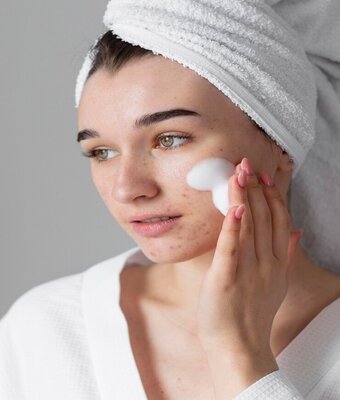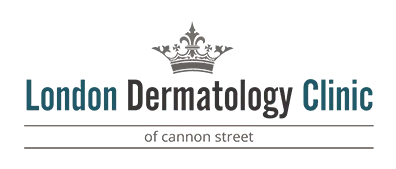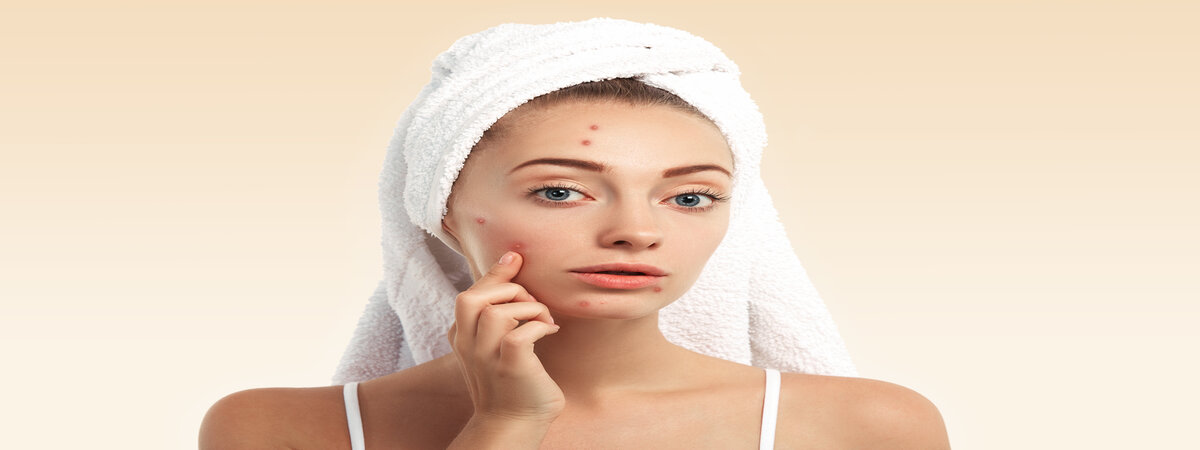
The Importance of Avoiding Spot Squeezing
It’s tempting to squeeze a spot when you see one in the mirror. Most of us have done it at some point. But the truth is, squeezing usually makes things worse. It pushes oil and bacteria deeper into the skin, which means the blemish can stick around longer. On top of that, you’re more likely to cause an infection or leave a scar.
A better option? Use proven acne treatments at home, and if those aren’t enough, see a dermatologist who can safely treat stubborn spots without causing lasting damage.
The Risk of Infection
Any time you break the skin, you give bacteria a chance to get in. A squeezed spot can quickly turn into a painful, swollen infection that takes much longer to heal. In more serious cases, it may even need medical treatment.
There’s also an area of the face called the “danger triangle,” which runs from the corners of the mouth up to the bridge of the nose. Because of how the blood vessels connect there, infections in this area can spread more easily. While serious complications are rare, it’s another reason why squeezing simply isn’t worth it.
Why Squeezing Leads to Scarring
Scars are one of the most common problems we see after people squeeze their spots. Pressing and picking damages the skin’s structure, which can leave permanent marks or dark spots. For many patients, it’s not the acne itself that bothers them most—it’s the scars that remain afterwards.
Dermatologists at our clinic can help reduce scarring and guide you toward safer treatments that improve your skin without causing long-term damage.
Healthier Alternatives
Instead of squeezing, focus on a consistent skincare routine and safe, proven treatments:
Wash your face gently with a mild cleanser
Use non-comedogenic (non-pore-clogging) moisturizers
Try products with salicylic acid or benzoyl peroxide for breakouts
Avoid scrubbing too hard, which can irritate skin
Support your skin from the inside with good sleep, stress management, and a balanced diet
These steps won’t clear acne overnight, but with time and consistency, they make a real difference.
When to See a Dermatologist
If over-the-counter products aren’t working, or if your spots are leaving scars, it’s worth getting professional help. Dermatologists can:
Prescribe stronger creams or tablets tailored to your skin
Safely treat large or painful spots in clinic
Offer advanced options like chemical peels, microdermabrasion, or laser therapy for stubborn acne and scarring
Many patients tell us they wish they had sought help sooner. With the right guidance, you can finally get control over your skin instead of feeling controlled by it. At our dermatologists in London, you’ll find expert care tailored to your skin’s unique needs, helping you achieve lasting results safely.
FAQ
Is it ever okay to squeeze a spot?
While it’s generally advisable to avoid squeezing spots, there may be exceptions. If a spot appears to have a visible white or blackhead and is ready to naturally release its contents, very gentle and hygienic extraction might be considered. However, it’s crucial to exercise extreme caution, use sterile tools, and consult a dermatologist for guidance to minimize risks. Remember that self-extraction can still lead to scarring or infection, so professional advice is often the safest choice.
Can spot squeezing make acne worse?
Yes, spot squeezing can exacerbate acne by spreading bacteria, causing inflammation, and increasing the risk of scarring. It’s generally best to avoid this practice and opt for other acne management methods.
How can I minimize scarring from spots?
To reduce scarring, avoid squeezing spots, keep your skin clean, and apply topical treatments as recommended by a dermatologist. If scarring persists, consult a dermatologist for advanced treatments like laser therapy or chemical peels.
Are there specific signs of infection after squeezing a spot?
Watch for signs like increased redness, warmth, pus, or persistent pain around the squeezed spot. If you suspect an infection, seek immediate medical attention to prevent complications and scarring.


